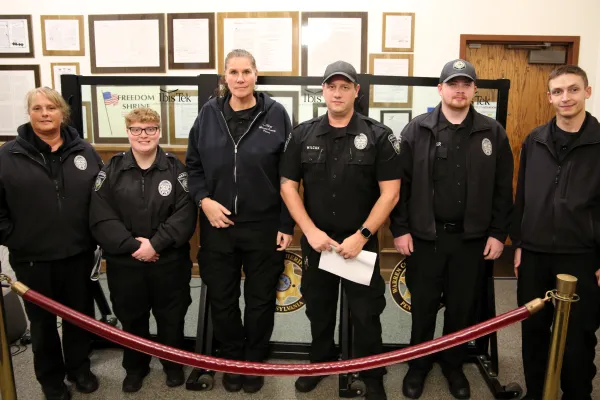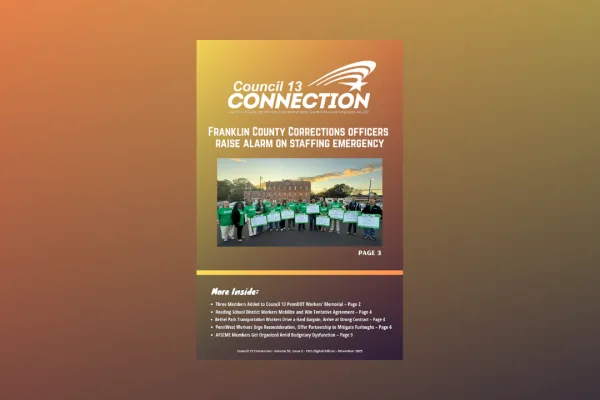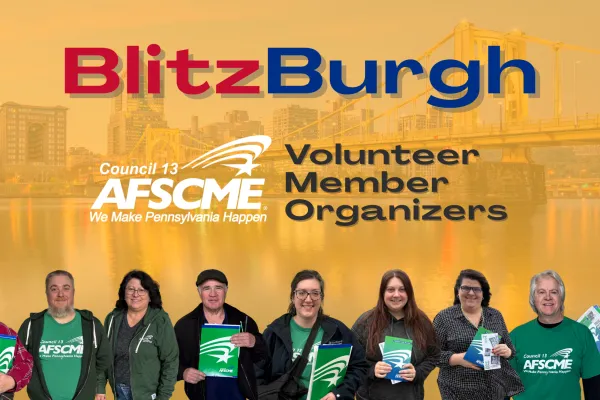
We Make Pennsylvania Happen!
Master Agreement
Master Agreement 2023-2027
Master Memorandum
Master Memorandum 2023-27
Join Today!
Sign up for MemberLink
Featured News
Warren County Public Safety Professionals Ratify Three-Year Contract
NEW Council 13 Connection available now!
BlitzBurgh: Council 13 Members Get Organized in the Steel City
Public employees ready for continued action following late PA budget passage
Upcoming Events
Officer Training (Franklin)
AFSCME Council 13 Franklin Field Office, 1276 Liberty Street, Franklin, PA 16323
Join us in Franklin on Saturday, January 10, for a Local Union Officer Training with your AFSCME sisters and brothers throughout northwestern Penns
Secretary-Treasurer Training (Wilkes-Barre)
AFSCME Council 13 Wilkes-Barre Field Office, 300 Laird St, Suite A-1, Wilkes Barre, PA 18702
AFSCME International will be hosting a Secretary-Treasurer training for all AFSCME local unions in the area on Saturday, January 24.
Steward Training (Plymouth Meeting)
AFSCME Council 13 Eastern Region Office, 3031 Walton Road, Building C, Suite 300, Plymouth Meeting, PA 19462
Join us in Plymouth Meeting on Saturday, January 31, for a Steward Training with your AFSCME sisters and brothers throughout southeastern Pennsylva



